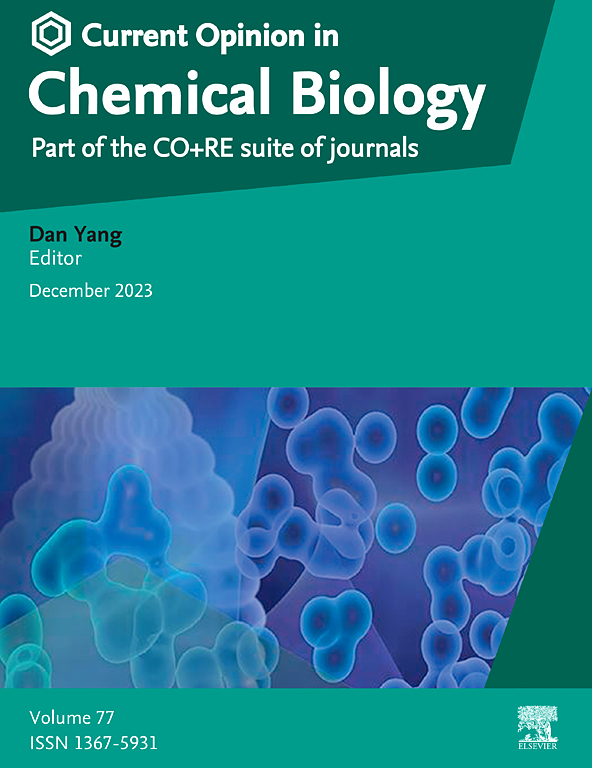接近标记在捕获生物分子相互作用中的发展进展
IF 6.1
2区 生物学
Q1 BIOCHEMISTRY & MOLECULAR BIOLOGY
引用次数: 0
摘要
近距离标记(PL)以其解决生物分子相互作用的时空动力学的能力,已成为询问蛋白质-蛋白质相互作用网络,亚细胞蛋白质组学和细胞间通讯的关键技术。本文综述了2023年至2025年PL的突破性进展,重点介绍了三个主要领域:(1)催化系统创新,包括新酶、级联反应和环境响应标记系统的开发,这些都提高了时空分辨率和体内适用性;(2)解决内源性靶点的新策略,促进本地组织和活体动物相互作用组的定位;(3)利用超分辨率成像或DNA纳米结构确定不同PL工具的标记半径。我们还简要讨论了下一代PL研究中需要的创新。本文章由计算机程序翻译,如有差异,请以英文原文为准。
Evolving advances of proximity labeling in capturing biomolecular interactions
Proximity labeling (PL), with its capability to resolve spatiotemporal dynamics of biomolecular interactions, has become a pivotal technology for interrogating protein–protein interaction networks, subcellular proteomics, and intercellular communication. This review focuses on the breakthrough developments in PL from 2023 to 2025, highlighting three major frontiers: (1) catalytic system innovation, including the development of new enzymes, cascade reactions, and environment-responsive labeling systems, which collectively lead to increased spatiotemporal resolution and enhanced in vivo applicability; (2) new strategies to address endogenous targets, facilitating interactome mapping in native tissues and live animals; and (3) determination of the labeling radius for different PL tools using super-resolution imaging or DNA nanostructures. We also briefly discuss the desired innovation in the next-generation PL research.
求助全文
通过发布文献求助,成功后即可免费获取论文全文。
去求助
来源期刊

Current Opinion in Chemical Biology
生物-生化与分子生物学
CiteScore
13.30
自引率
1.30%
发文量
113
审稿时长
74 days
期刊介绍:
COCHBI (Current Opinion in Chemical Biology) is a systematic review journal designed to offer specialists a unique and educational platform. Its goal is to help professionals stay informed about the growing volume of information in the field of Chemical Biology through systematic reviews.
 求助内容:
求助内容: 应助结果提醒方式:
应助结果提醒方式:


